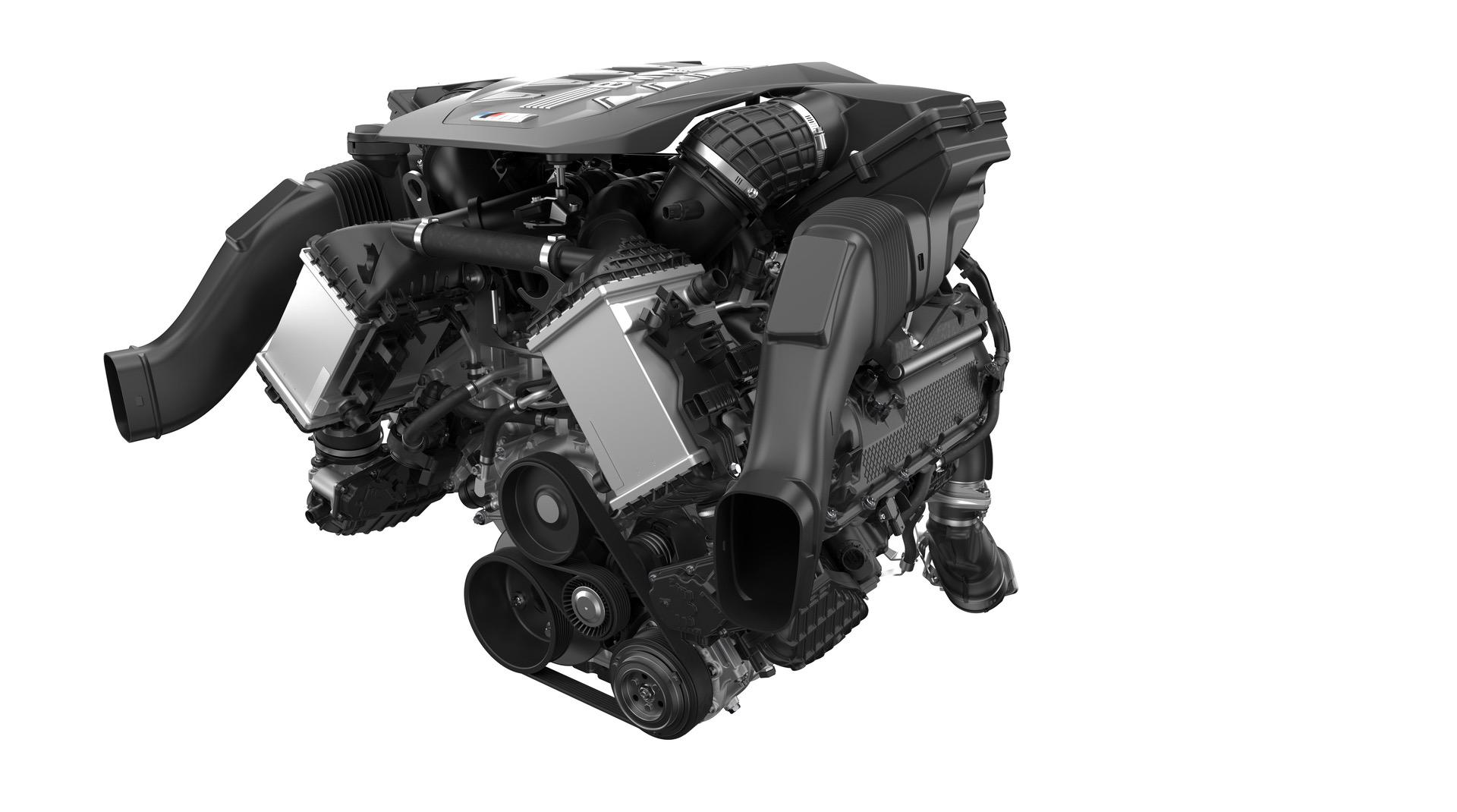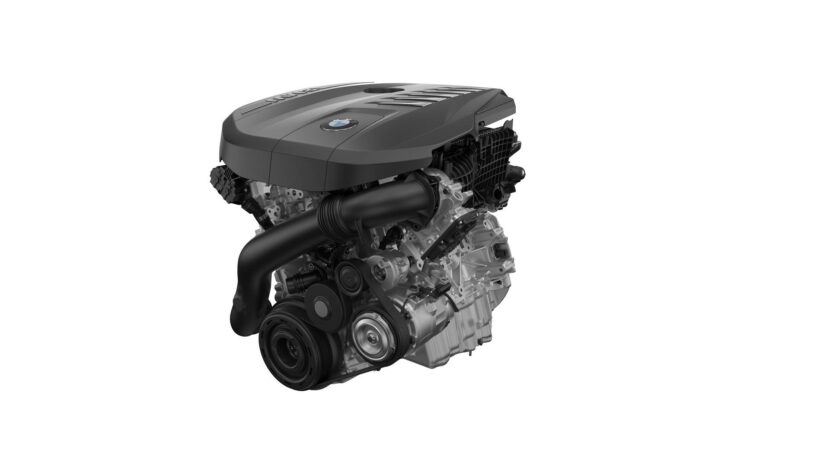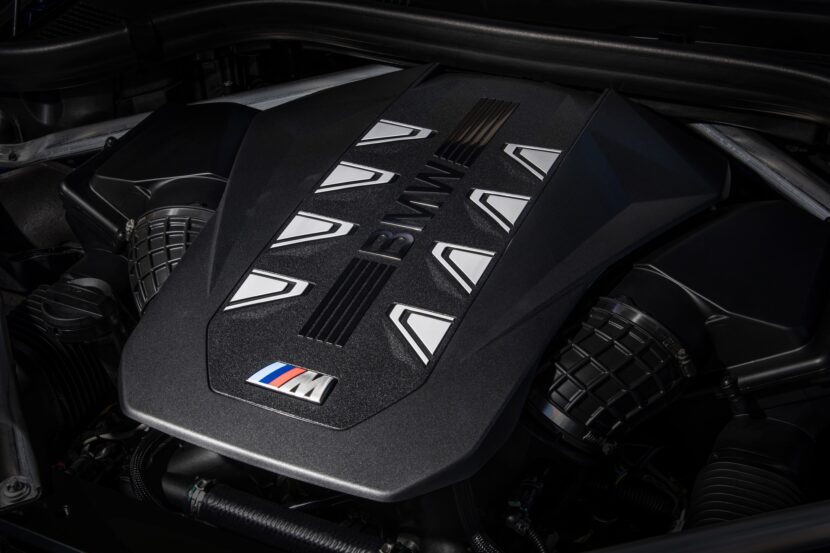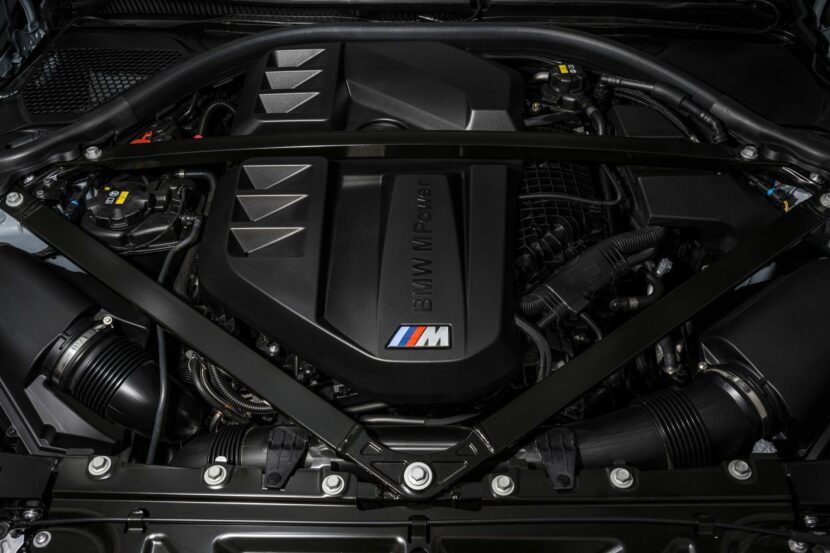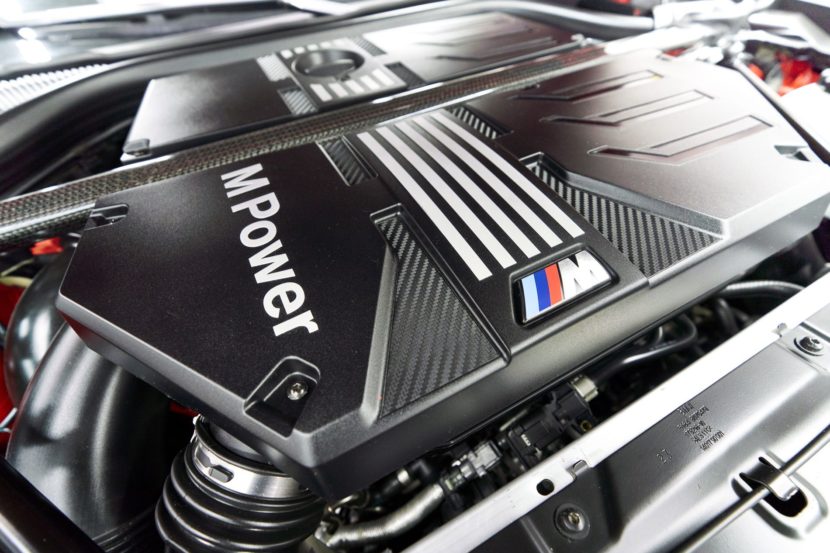The honor to debut a new series of BMW engines goes today to the 2023 BMW X7 Facelift. The refreshed seven-seater luxury SUV was just unveiled and along with it, BMW also shared the tech details behind the next generation of engines. Firstly, we have the BMW B58 3.0 liter six-cylinder engine with its TU2 update. The B58 engines gets a power boost of 40 horsepower for a total output of 375 ponies (380 hp in Europe). The peak torque was also bumped by 52 lb-ft of torque to 383 lb-ft (520 Nm). Since the B58 is also paired with a 48 Volt mild-hybrid system, the total torque can be boosted to 398 lb-ft (540 Nm).
The mild-hybrid setup also helps with fuel efficiency, thanks to the Miller cycle which shortens the opening time of the intake valves. Therefore, it leads to an increase in effectiveness of the turbo system and intercooler. The VANOS variable camshaft timing now works electrically further helping to minimize emissions. Thanks to the power bump, the BMW X7 xDrive40i – powered by the B58 – runs from 0 to 60 mph in 5.6 seconds or to 62 mph (100 km/h) in 5.8 seconds. Top speed is limited to 155 mph (250 km/h).
All-new 4.4 Liter V8 TwinTurbo
BMW has bumped the X7 M50i model to a new name: BMW X7 M60i. And to properly differentiate between these models, the BMW X7 M60i also comes with a brand-new engine: a 4.4 liter V8 TwinTurbo. This is the BMW S68 unit developed by the M division which will end up in future M models as well. The new powerplant benefits from a cross-bank exhaust manifold, bank-symmetrical turbochargers and an external engine oil cooling. There is also a new oil pump and reinforced crankshaft drive.
Of course, the new S68 comes with more power. The V8 now makes 523 horsepower (530 hp in Europe) and a peak torque of 553 lb-ft of torque (750 Nm). The engine propels the BMW X7 M60i from 0 to 60 mph in just 4.5 seconds, or from 0 to 62 mph in 4.7 seconds. We’ve recently tested the S68 engine in the upcoming 2023 BMW 760i xDrive and we were impressed by its power, smoothness and sound. You can read that review here.
This new V8 will also be used in future M60i models, like the facelifted X5 M60i. Naturally, purists might be upset by BMW’s choice to use an M-specific engine in M-lite cars. But, this was likely a simple business decision: the new engines are EURO 7 compliant. And with the uncertain future of combustion engines, it doesn’t make a lot of sense to have two separate V8 powerplants.


